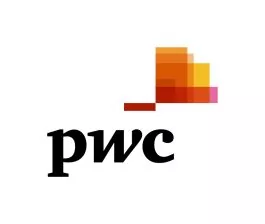Revenue: Canada Comments on Tax Shelters - PricewaterhouseCoopers LLP
This article outlines, from a taxation perspective, some of the possible risks and potential problems with tax shelters. The questions and answers are based on information recently issued by Revenue Canada and should give taxpayers a basic understanding of their interpretation of what a tax shelter is and what tax issues investors should watch for when considering investing in such a vehicle.
What is a Tax Shelter?
A tax shelter is defined in the Canadian Income Tax Act to be any property for which a promoter represents that an investor may claim deductions or receive benefits which equal or exceed the amount invested within four years of its purchase.
What Should Investors Watch Out For?
Investors should be wary of any tax shelter promotion where the anticipated net return to the investor in the first few weeks is predominantly due to projected income tax refunds. Investors should be particularly concerned with any tax shelter promotion where there is a suspicion that one or more of the following problems exist:
- No real business activity will be carried on;
- The business has no reasonable expectation of profit;
- The assets of the business are overvalued;
- The expenses are inflated or unreasonably high;
- Losses for tax purposes will exceed the amount of the investment actually "at risk";
- Verbal assurances of income tax consequences from the promoter or others that differ from, or are not confirmed by, professional opinions contained in the investment documents.
Investors should also be aware that there may be other requirements in the Income Tax Act that must be met for specialized tax shelter investments such as oil and gas shelters.
What Happens if Revenue Canada Determines that One of These Problems Exists?
- Where no real business activity is carried on or where there is no reasonable expectation of profit, all losses claimed by the investor will be disallowed.
- Where assets or expenses have been inflated, the inflated portion of the losses claimed by the investor for these items will be disallowed.
- Where losses claimed by an investor exceed the amount that the investor has paid or owes (this is called the "at-risk amount"), the losses will be reduced to the "at-risk amount".
In all cases, interest on the amounts owing will also be payable.
Furthermore, if the investor knowingly, or under circumstances amounting to gross negligence, made a false statement or omission pertaining to the tax shelter investment to Revenue Canada when filing a tax return, the law provides for an additional penalty of 50% of the taxes payable as a result of the reassessment. The investor could also face criminal prosecution if it is determined that there was criminal intent involved in the false statement or omission.
How Many Tax Shelters are Audited Each Year?
Revenue Canada reviews all tax shelters to ensure that losses claimed by investors are properly deductible for tax purposes. In the last four years, the investors in approximately 1,000 tax shelters were reassessed for additional taxes owing of over $250 million.
How Many Criminal Prosecutions have Resulted from Tax Shelter Promotions?
Revenue Canada has obtained ten criminal convictions against tax shelter promoters for tax fraud. These convictions have resulted in fines of over $9 million and jail terms in all cases.
What can Investors Do to Avoid Future Problems Associated with Tax Shelters?
- As an investor, know who you are dealing with. Ask for the prospectus or offering memorandum and any other documents available in respect of the investment and carefully read them.
- Pay particular attention to any statements or professional opinions in the documents that explain the income tax consequences of the investment. Often, these opinions will tell the investor about the problems that can be expected and suggest that the investor obtain independent legal advice.
- Get any verbal assurances from the promoter or others in writing.
- Ask the promoter for a copy of any advance income tax rulings provided by Revenue Canada in respect of the investment. Read the ruling given and any exceptions in it.
- Seek professional advice from your PricewaterhouseCoopers LLP tax advisor before signing any documents.
Tax Shelter Identification Numbers do not Legitimize Investments
Under the Income Tax Act, the promoter of any tax shelter has to get an identification number from Revenue Canada before selling the tax shelter. The number does not indicate that Revenue Canada guarantees the investment or authorizes any resulting tax benefits. They only use this identification number later to identify unacceptable tax avoidance arrangements.
The information provided herein is for general guidance on matters of interest only. The application and impact of laws, regulations and administrative practices can vary widely, based on the specific facts involved. In addition, laws, regulations and administrative practices are continually being revised. Accordingly, this information is not intended to constitute legal, accounting, tax, investment or other professional advice or service.
While every effort has been made to ensure the information provided herein is accurate and timely, no decision should be made or action taken on the basis of this information without first consulting a PricewaterhouseCoopers LLP professional. Should you have any questions concerning the information provided herein or require specific advice, please contact your PricewaterhouseCoopers LLP advisor, or:
David W. Steele PricewaterhouseCoopers LLP 145 King Street West Toronto, Ontario M5H 1V8 Canada
Fax:1-416-941-8415
E-mail: Click Contact Link
For further information on taxation in Canada, enter a text search "PricewaterhouseCoopers" and "Canada" and "Mondaq Business Briefing".
Click Contact Link
PricewaterhouseCoopers LLP is a Canadian member firm of PricewaterhouseCoopers International Limited, an English company limited by guarantee.

